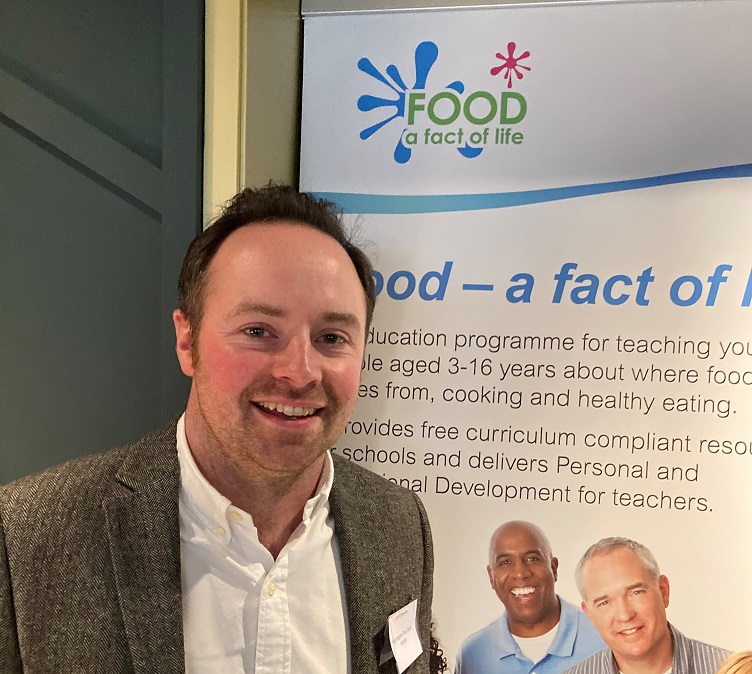Teachers learn about dairy's environmental credentials
Monday, 6 February 2023
The dairy industry’s commitment to tackling environmental issues was highlighted at an event aimed at bringing education and agriculture closer together.
Scott Shearlaw, 2018’s Young Farmer of the Year, spoke at the Food - a fact of life conference in Edinburgh on 21 January, organised by AHDB in partnership with the British Nutrition Foundation.
Addressing an audience of more than 100 teachers from across Scotland, his 30-minute presentation highlighted facts around the environmental impact of food production in the UK and the dairy industry’s commitment to working towards net-zero greenhouse emissions.
He outlined the breadth of work being done to take on this ambitious challenge, which includes measures such as reducing reliance on the use of artificial fertiliser and growing clover to help fix nitrogen from the air into the soil.
Mr Shearlaw, a member of our dairy sector council, farms in South Ayrshire, where, in partnership with his parents, he milks 420 cows a year to produce 3.2 million litres of quality milk for big Nestle brands, including KitKat and Quality Street.
Among his key messages were that 85 per cent of farmland in Scotland is only suitable to grow grass, grassland soils can capture more carbon than woodland soil, efficiencies make a big difference, and if the global dairy herd was as efficient as the UK’s, we would only need 76 million cows to produce the same amount of dairy products as the current 278 million worldwide.
He also highlighted that the carbon footprint of the UK beef herd is less than half the carbon footprint of global beef.
Afterwards, teachers said how informative and engaging they found Mr Shearlaw’s session and hearing valuable information from the industry first-hand gave them talking points to take back to the classroom.
Mr Shearlaw said: “It was great to have the opportunity to speak to over 100 teachers from Scotland to dispel some of the myths around the environmental impact of livestock farming in the UK and to inform them of the work being done in the industry to reduce our carbon footprint.”
His contribution helped reinforce the ‘where food comes from’ message – a core theme of the Food – a fact of life programme, along with nutrition and healthy eating and cooking.
The hugely successful event was also attended by the Royal Highland Education Trust (RHET) and Quality Meat Scotland (QMS), which supported the day with specialists on hand to showcase their education resources.
Also speaking at the event were the Food and Drink Federation Scotland, Scottish Qualifications Authority (SQA), Education Scotland and John McKendrick from Glasgow Caledonian University, who showcased new research findings from the Scottish Poverty and Inequality Research Unit on the cost of ingredients in food education.
Training events for teachers are a crucial part of the delivery of the Food - a fact of life education programme. The specialist events enable teachers to be better informed, more confident and inspired in delivering food education to their students. Almost 1,000 teachers attended Food - a fact of life training events in 2022.

Sectors:

